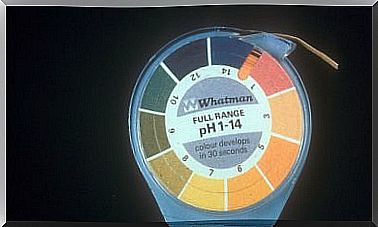10 Characteristics Of Toxic Parents
There are many types of toxic parents. Some are too permissive; others excessively severe. But what is the middle ground? How can you find out if you are a toxic parent?

Toxic parents are unaware that their behavior harms their children rather than benefits them. In their attempt to be good parents, they sometimes make serious mistakes.
It is important to note that toxic behaviors are not only related to violence or physical abuse. On a psychological level, there are a number of harmful behaviors that can interfere in the life of any child or adolescent.
Toxic parents: main traits

1. “Manipulating it I get what I want”
Being a parent and manipulative? Believe it or not, it is possible. There are parents who use their children to get what they want regardless of how or simply to impose their authority and be right, even if it is not the most appropriate.
Although they think that their offspring is not aware of it, it can sometimes perceive it. And not only that, but these types of attitudes can cause very deep emotional wounds that will affect your future.
The most common traits of these toxic parents are victimhood and guilt. Instead of scolding the child when he does something wrong or talking to him about it, they play the victim and generate a great sense of guilt in him.
In fact, many times the child ends up accepting responsibility for situations and behaviors that he has not even generated.
2. “Sometimes, I get out of hand”
This not only refers to physical aggression, which is also a sign of abuse, but above all to verbal aggression.
There are toxic parents who believe that to educate their own, it is best to insult and disqualify them. They mistakenly believe that this way the child will learn sooner.
However, this behavior not only damages children’s self-esteem, it is counterproductive. The best way to get them moving forward is by showing support and trust.
They should know that their parents trust them and that they have positive expectations about their behavior, as this will cause them to trust themselves more and feel better. The latter is known as the Pygmalion effect.
3. “You know I love it, why show it to you?”
Lack of affection is one of the main problems that a child can suffer. In the future, it can lead to emotional deficiencies that would lead to emotional dependence.
In the same way, this toxic behavior can generate distrust and serious imbalances in the interpersonal relationships that you maintain in the future.
Do not assume that children already know that they are loved. It is necessary to offer them love, affection and respect from their earliest childhood; they have to know all the love that is professed to them.
4. “I am not interested in what worries you”
Lack of communication creates distrust and prevents the child from expressing his emotions. Often, toxic parents do not tend to worry about this aspect, it is more they think that it is not important in the little ones.
Listening to the ravings of the little ones may not be a tasteful dish, especially when you have a stressful day. However, you have to pay attention to what they say to know how they feel and validate their emotions.
If they tell it, it is because they believe they can vent. Therefore, you have to show them that you are available to them and that you are interested in what they say.
5. “I don’t like those friends for you”
You cannot totally control children’s relationships. It is normal to be concerned if you play or date people who do not seem appropriate, but many times these opinions are based on prejudice.
Children must be educated to have an authentic personality. Strengthening your self-esteem and self-esteem is essential. This will make it much easier for you not to surround yourself with bad company.
Forbidding you to see your friends can be, in addition to painful and traumatic, a long-term problem. After a certain age, you have to learn to be wrong.
6. “You must study, you must be …”
Some parents have too many expectations of their children. It is normal to wish them to be successful, to be the best in class, or to have many friends, but none of this matters if the child is unhappy.
A child is an autonomous individual and has to discover what it is that he wants for himself. It is convenient to support and guide him, but never pressure him to be someone different according to a series of expectations.
This will only cause you frustration, stress, and the disapproval of your family. Let him be what he wants.
7. “You can’t do this, I can”
One of the main problems of toxic parents is trying to teach their children good behaviors when they do not carry them out.
Inconsistency only breeds misunderstandings and grudges. It is not logical to forbid something to the children and that they discover, for example, that the father does it secretly.
Not only will it disappoint them, but they will lose respect for their parent.
8. “You should have gotten a 10”
There are toxic parents who are very demanding with their children. Do you remember that friend from class who cried for not getting the highest grade? And you so happy with your 5 scraping …
Parents must control their level of demand. It is better to get a 10, of course, but not to force a child to get it as if he were useless for not doing it.
There are many factors that can influence a note. If he rolls a 5 nothing happens and if he fails, neither. It is an apprenticeship, not a competition.

9. “Don’t worry, I’ll protect you”
Being overprotective is one of the worst behaviors that a parent can have. Because of this, children will not know how to make decisions and face their problems when they grow up.
It is not good to protect a child inside a bubble where no one will hurt him. Life, in the end, teaches based on falls and making mistakes. You must learn to make mistakes and face your decisions. Overprotecting him does him no favors: it delays his personal maturation.
10. “You can do whatever you want”
Teaching unhealthy habits to children will not be positive either. Letting him drink alcohol from an early age, smoke, or engage in other unhealthy practices does not make him a better parent, but rather an irresponsible parent.
You cannot be friends with a child, no matter how much you want to. You have to be by his side and make him see his parents as pillars on which to lean, but that does not mean having to spoil him.
What if I am a toxic parent?
Toxic parents are very negative for their children but, above all, for themselves. Usually they tend to focus their frustrations on their offspring, without realizing it.
It is important to identify if you have certain toxic behaviors. If so, you could be doing a lot of damage to your children, as well as their personal growth.
Review your attitudes and ask for help, if you consider it necessary. Never too late to change.








